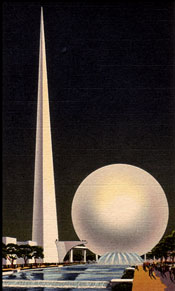BROWSE BY CATEGORY
- Archives and Libraries
- Blogs and Networking
- Bookmark This
- Digital Tools
- Examples of Teaching
- Exhibits
- Film Reviews
- History and Headlines
- Historic Sites and Museums
- Historical Thinking
- Holidays and Heritage
- Issues and Research
- Lesson Plans
- Material and Visual Culture
- Multimedia
- Organizations and Agencies
- Primary Sources
- Professional Development
- Publications
- Student Activities
- Teaching Materials
- Websites
National History Day 2010

Kudos to the dedicated staff of the National History Day program for this year's website makeover. The new design facilitates finding information and materials to guide research such as Eight Steps of Historial Research, lists of Teacher Resources including how to guides, and discussions about integrating National History Day into the classroom curriculum.
The topic for the 2010 competition is Innovation in History. As always, local, state, and national historic associations frequently link to their own resources to help students find primary sources and to jump start the resource process.
Here are a few we've found that might be helpful as well.
When you think of the topic Innovation in History perhaps technological progress and scientific invention are the first fields that come to mind. The National Archives, however, encourages students to think more broadly. For 2010, topics and search links include a spectrum of concepts to explore. The Bill of Rights, United Nations Charter, Martha Graham and Modern Dance, and Mathew Brady are among suggested topics that lead students to consider ideological, institutional, political, and culltural innovation—each with links to related archival materials.
The Lemelson Center of the Smithsonian, however, focuses on the realm of scientific and technological invention and innovation.
The interactive Invention at Play gives hands-on experience with processes that lead to innovative thinking: imagination, trial and error, persistence. Good for elementary students, this online problem-solving experience works for older students and adults as well. Inventors stories give real-life experiences from a variety of inventors who talk about the creative process.
And the online interactive Word Play illustrates the benefits of collaboration and teamwork—all concepts students will want to consider as they define analytical categories to apply to whatever historical topic they research.
Hagley Museum and Library in Delaware on the banks of the Brandywine specializes in the story of American enterprise, specifically, in the study of business and technology in America. Their collections include individuals' papers and companies' records ranging from 18th-century merchants to modern telecommunications and illustrate the impact of the business system on society.
Hagley provides The Student Guide for History Day 2010 which includes a list of topics with links to related material in Hagley's online digital archive, a composite digitized resource listing of trade catalogs, and pamphlets useful for History Day.
Online Exhibits include History of Patent Medicines, Universal Design, and an interactive look at the gadgets and machines from World's Fairs: Centuries of Progress: American World's Fairs, 1853-1982.
Browse back issues of the museum's newsletters and you'll also find valuable tips on primary and secondary resources—and perhaps further ideas for topics if students are still looking around.